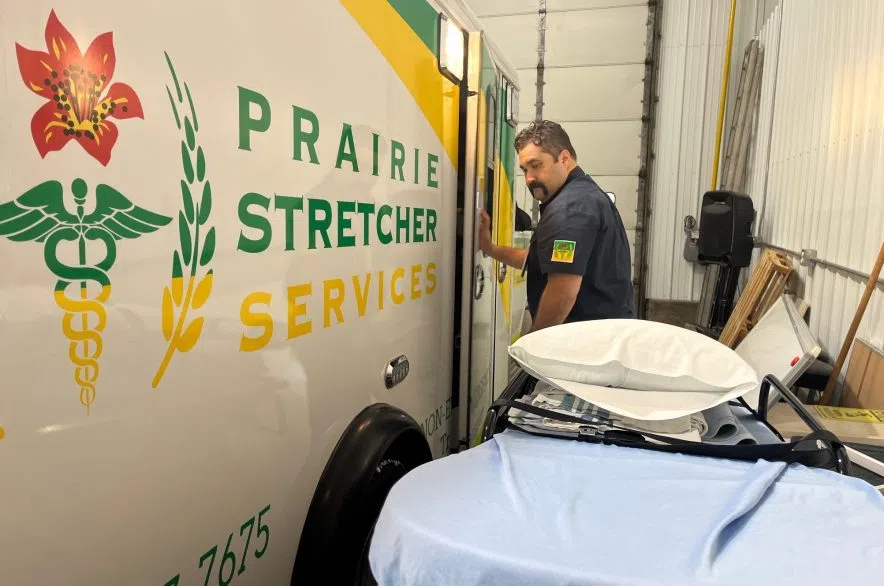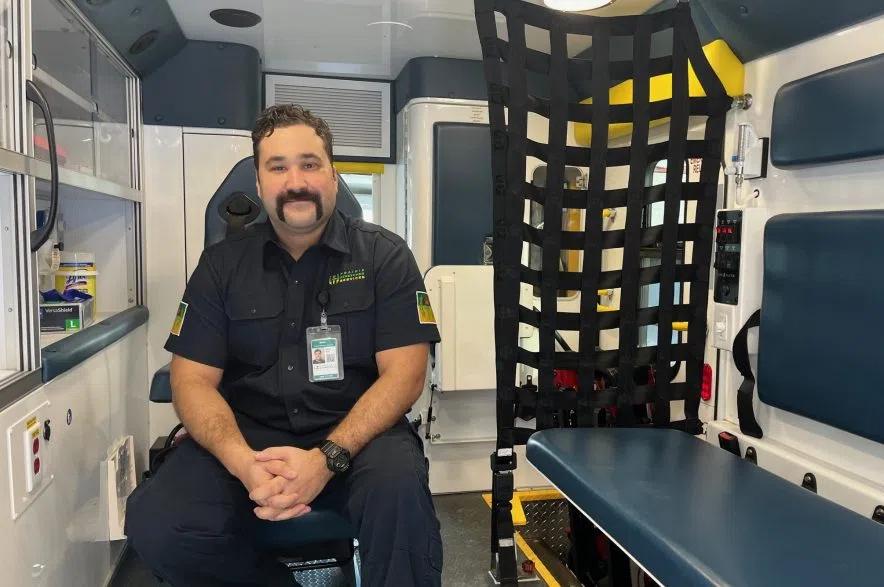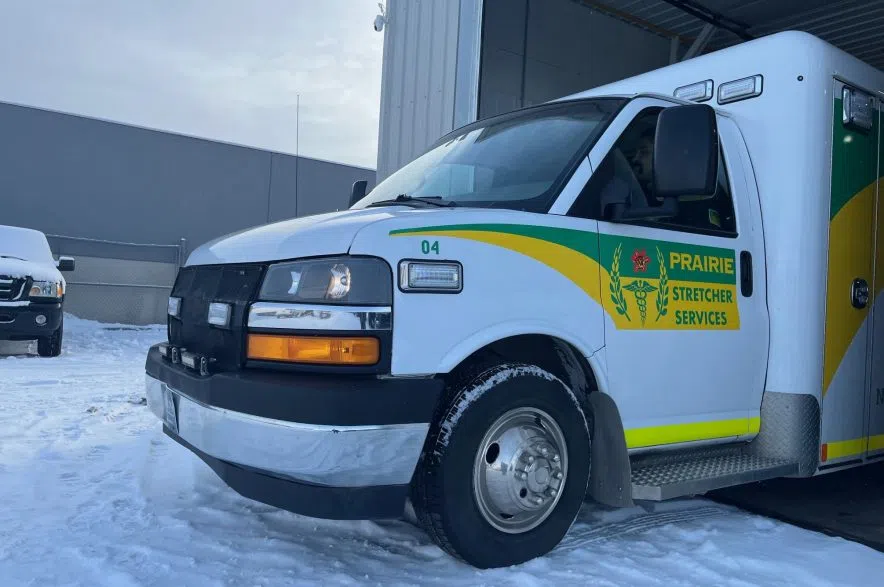The demand for ambulances and high call volumes for EMS services in Saskatchewan has left some patients waiting hours for transportation.
The owner of a private non-emergency stretcher service is hoping to provide a helping hand.
Keelan Paul, one of the owners of Prairie Stretcher Services, said he started the company seven months ago because he has had family members directly affected by the long wait times for transportation services.
“We were stunned by the amount of time it took to get them to their appointments,” he said.
The organization has taken Type 3 decommissioned ambulance units and put them back into service to provide non-emergency stretcher transportation to the hospital or back home.
The service is only for those in stable condition, meaning patients need to be conscious and not in immediate pain.
“If you want to go to the ER, absolutely we can take you there, but it can’t be in an emergency situation,” he said, noting medication is not provided during transportation.

Prairie Stretcher Services provides non-emergency transports for stable patients to the hospital and back home. (Mia Holowaychuk/650 CKOM)
Paul said the units also have stair chairs, allowing them to access people’s homes for bedside to bedside transportation.
He said the service also provides portable oxygen, allowing patients to transfer from their own oxygen supply to the units for continuing support.
Paul said when Prairie Stretcher Services receives a phone call, staff will try their best to be on location within the hour.
READ MORE:
- Vanscoy woman turns to firefighters after ambulance for daughter doesn’t arrive
- Record year for Saskatoon paramedic responses: Medavie
- Province provides funding for two more ambulances for Saskatoon
Although there isn’t a flat rate, and transportation varies on the individual case, the average cost for the service is $150 for a one-way transfer if the pickup location is within a 25-kilometre radius from the Saskatoon home base.
He added that price is almost half the cost of the $325 flat fee a Saskatoon ambulance would charge.
Paul said the service can also be covered by some insurance policies.
He said the business also works with hospitals like St. Paul’s Hospital, Royal University Hospital and City Hospital to immediately transport discharged patients home or in between facilities.
“Typically that’s how it is, because it’s such a stressful demanding system right now,” he said.
The organization employs responders with a standard first aid CPR training level or higher, such as firefighters, law enforcement and nurses.
“(There’s) quite a wide variety, which really helps service these transports because we have people with different backgrounds,” Paul said.
Paul said currently the organization receives on average two or more calls a day depending on the current pressures on the health system.
He added that Prairie Stretcher Services isn’t limited to Saskatoon, but can provide aid all over the province, even travelling as far as Flin Flon, Man.
He said Prairie Stretcher Services also works with funeral homes to transport deceased people.
Paul said with his 13 years of experience as a first responder in both EMS and fire services, he has seen the need for services like this grow.
“When we go into the hospital and the ER, (we) can see into the back room where the paramedics are waiting … and sometimes you have one paramedic watch over a couple of patients because (of) the demand,” he said.
Paul said Prairie Stretcher Services isn’t meant to compete with ambulances services in the city, but rather to assist with the high pressures and calls EMS services receive.
“Let’s get these patients out, and get them home where they can be in comfort,” he said.
Prairie Stretcher Services operates year-round, 24 hours a day.
“If you need us, give us a call anytime day or night,” Paul said.












